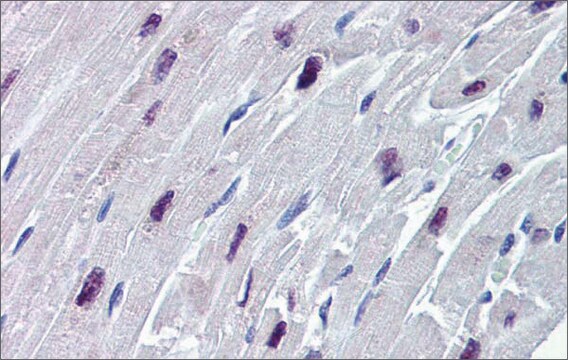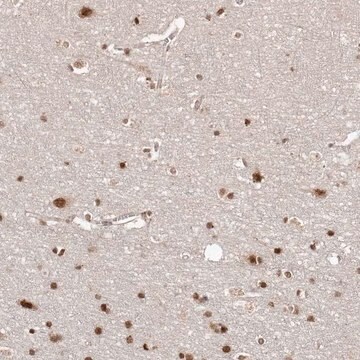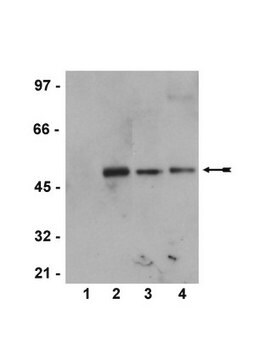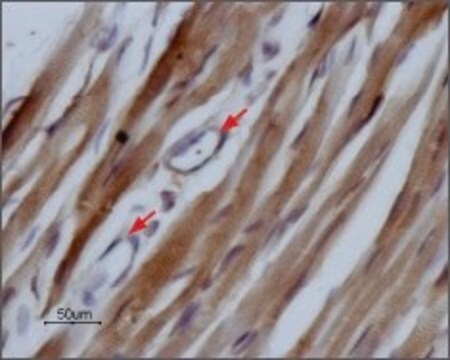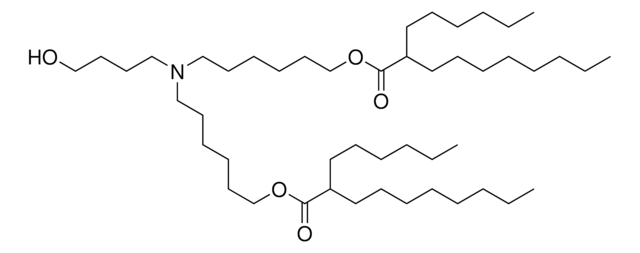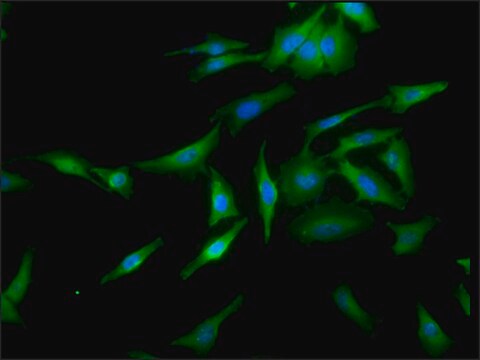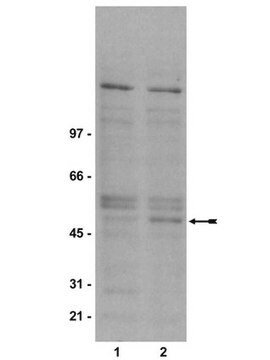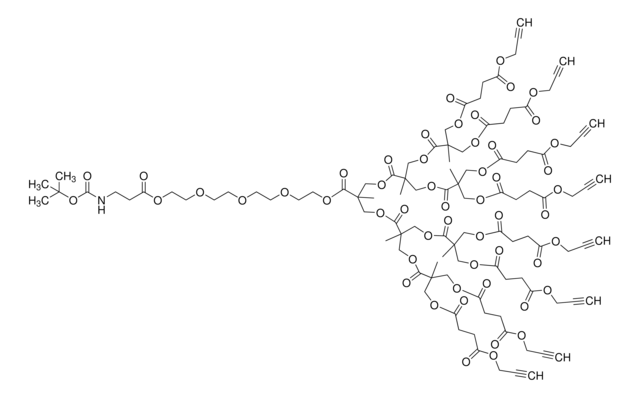AB10537
Anti-Sox4 Antibody
serum, from rabbit
Synonym(s):
SRY (sex determining region Y)-box 4, ecotropic viral integration site 16, SRY-related HMG-box gene 4, SRY-box containing gene 4
About This Item
Recommended Products
biological source
rabbit
Quality Level
antibody form
serum
antibody product type
primary antibodies
clone
polyclonal
species reactivity
mouse
technique(s)
immunohistochemistry: suitable
NCBI accession no.
UniProt accession no.
shipped in
wet ice
target post-translational modification
unmodified
Gene Information
human ... SOX4(6659)
General description
Proteins belonging to the Sox family are involved in various phases of embryonic development including; neural development, hemopoiesis, lens development, chondrogenesis, and sex determination as well as cell fate. Sox4 is a part of the C subgroup of Sox proteins, and is involved in B cell and endocardial ridge development. During embryonic development, Sox4 expression has been observed in several tissues including; lung, gonads, embryonic heart, mesonephros, CNS, thymus, tooth buds, and T and pre-B cells. Sox4 has also been observed in mature tissue, especially in the pancreas, heart, lung, CHS, thymus, and gonads. Recent studies have linked overexpression of Sox4 to the development of various types of tumors and cancers, and indicating a potential for Sox4 as a therapeutic marker.
The previously assigned protein identifier Q5SW95 has been merged into Q06831. Full details can be found on the UniProt database.
Specificity
Immunogen
Application
Epigenetics & Nuclear Function
Transcription Factors
Quality
Immunohistochemistry Analysis: 1:300 dilution of this antibody detected Sox4 in mouse embryo pancreas tissue.
Target description
Physical form
Storage and Stability
Handling Recommendations: Upon receipt and prior to removing the cap, centrifuge the vial and gently mix the solution. Aliquot into microcentrifuge tubes and store at -20°C. Avoid repeated freeze/thaw cycles, which may damage IgG and affect product performance.
Analysis Note
Mouse embryo pancreas tissue
Disclaimer
Not finding the right product?
Try our Product Selector Tool.
Storage Class Code
10 - Combustible liquids
WGK
WGK 1
Certificates of Analysis (COA)
Search for Certificates of Analysis (COA) by entering the products Lot/Batch Number. Lot and Batch Numbers can be found on a product’s label following the words ‘Lot’ or ‘Batch’.
Already Own This Product?
Find documentation for the products that you have recently purchased in the Document Library.
Our team of scientists has experience in all areas of research including Life Science, Material Science, Chemical Synthesis, Chromatography, Analytical and many others.
Contact Technical Service
